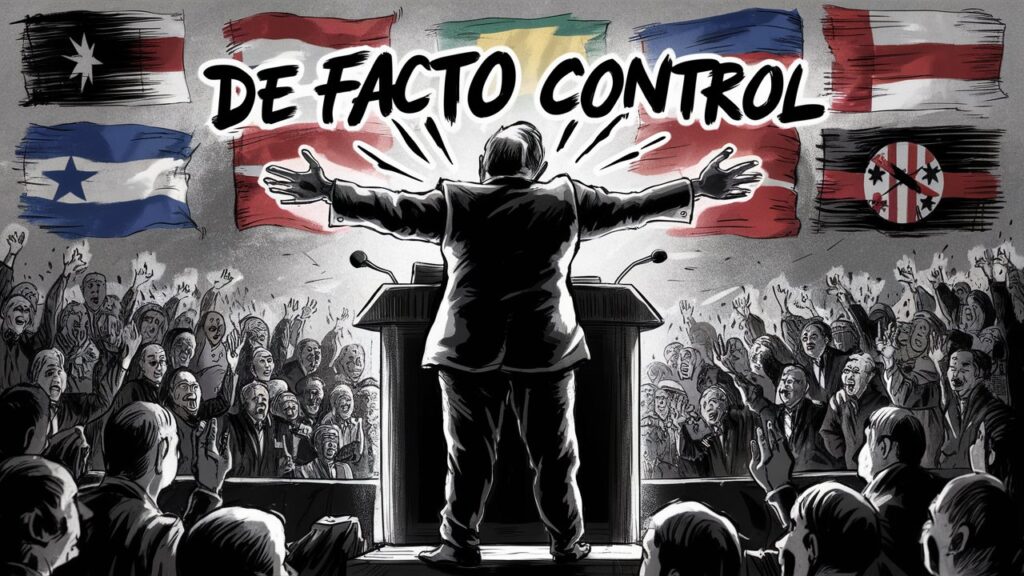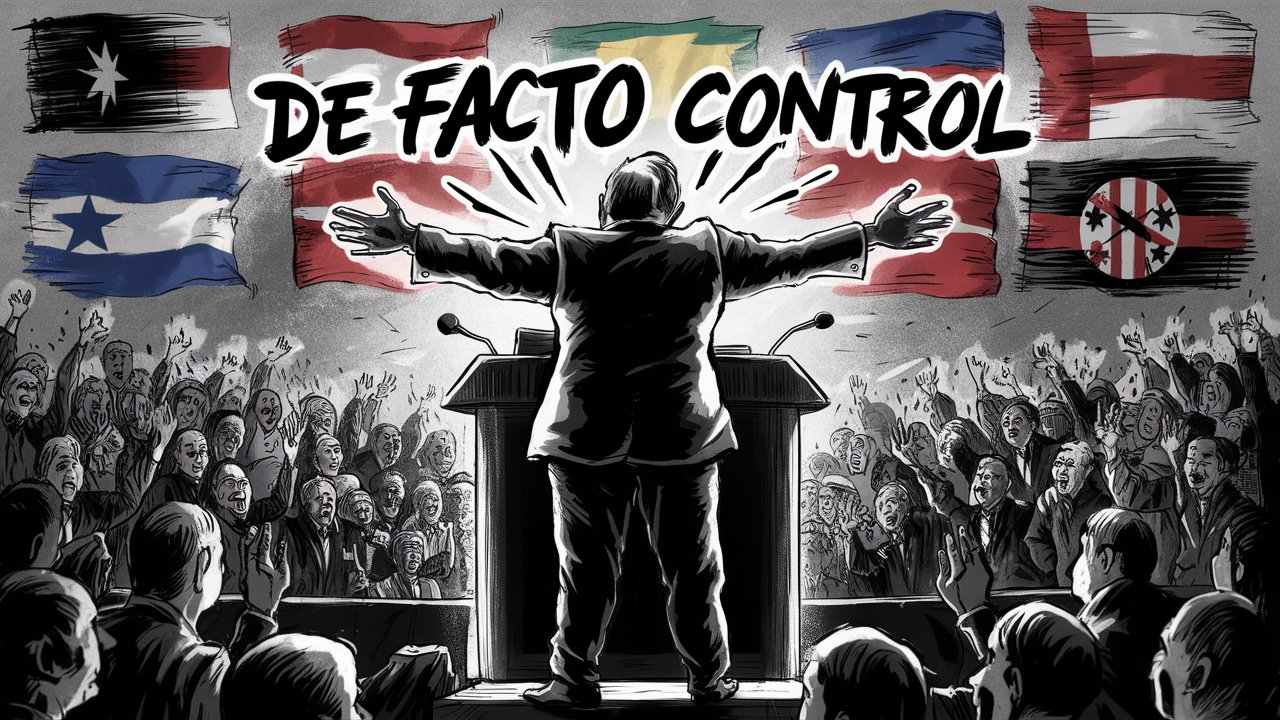
Introduction
When we think of control, it’s more often than not in a formal or legitimate sense, with clear documentation and understandings that layout who is in charge. But what happens when control is worked out without official acknowledgment? This is where the concept of “de facto control” comes into play. Whether in commerce, law, or indeed day-to-day intuitive, understanding de facto control is vital since it works behind the scenes, frequently without express affirmation. In this article, we’ll investigate the ins and outs of de facto control, shedding light on what it implies, where it applies, and why it matters.
What is De Facto Control?
Definition of De Facto Control
De facto control alludes to a circumstance where a individual or substance has control over something or somebody without having formal or lawful specialist. Not at all like de jure control, which is lawfully recognized and set up, de facto control happens in hone, indeed if it isn’t reported or formally sanctioned.
Difference Between De Facto and De Jure Control
The key contrast between de facto and de jure control lies in their acknowledgment. De jure control is lawfully recognized and enforceable, such as a company’s board of directors’ specialist. On the other hand, de facto control may not be legitimately recognized but is still successful in affecting choices or actions.
Examples of De Facto Control in Different Contexts
De Facto Control in Corporate Governance
In the corporate world, de facto control can happen when a shareholder, who doesn’t hold a larger part stake, impacts the company’s choices. This impact may come from individual connections with board individuals, vital unions, or money related leverage.
De Facto Control in Relationships
De facto control isn’t constrained to trade; it can moreover happen in individual connections. For occasion, one accomplice may apply control over the other through control, enthusiastic use, or money related reliance, indeed if they aren’t legitimately or formally recognized as the controlling party.
De Facto Control in Politics
In legislative issues, de facto control can be seen when an person or bunch uses control without holding an official position. This can happen in circumstances where casual systems, unions, or indeed open supposition awards them impact over political decisions.
Legal Suggestions of De Facto Control
Challenges in Demonstrating De Facto Control
Proving de facto control can be challenging since it regularly needs formal documentation. Courts may require prove of steady impact or control over choices to recognize de facto control, making it a complex legitimate issue.
Case Ponders on De Facto Control
Several lawful cases have investigated de facto control, especially in corporate law. These cases regularly rotate around shareholders or accomplices who apply critical impact without holding a lion’s share stake, driving to debate over control and decision-making authority.
Why Understanding De Facto Control is Important
Impact on Commerce Decisions
In trade, recognizing de facto control can anticipate clashes and guarantee that decision-making specialist is clear. It can moreover offer assistance recognize potential dangers, such as the impact of minority shareholders or outside parties.
Social and Moral Considerations
De facto control too raises social and moral questions, especially in connections and legislative issues. Understanding who really holds control can shed light on control flow and guarantee that people or bunches aren’t being controlled or unjustifiably influenced.
How to Recognize De Facto Control
Signs of De Facto Control in Business
Identifying de facto control in trade can include looking at who impacts key choices, indeed if they do not have a formal part. This might incorporate watching who the board of executives counsels with or whose conclusions carry the most weight in key discussions.
Recognizing De Facto Control in Individual Relationships
In individual connections, de facto control can show through control, passionate constraint, or monetary reliance. Recognizing these signs can offer assistance people address unfortunate flow and look for bolster if needed.
Identifying De Facto Control in Politics
In legislative issues, de facto control can be distinguished by looking at who impacts approach choices, indeed if they do not hold an official title. This may incorporate lobbyists, compelling givers, or indeed open figures who influence open opinion.
Preventing De Facto Control
Establishing Clear Lawful Frameworks
One way to anticipate de facto control is by setting up clear lawful systems that characterize who holds control and decision-making specialist. This can offer assistance guarantee that impact is legitimately recorded and recognized.
Promoting Straightforwardness and Accountability
Transparency and responsibility are pivotal in anticipating de facto control. By guaranteeing that choices are made straightforwardly and that those in control are held responsible, it’s conceivable to minimize the impact of informal parties.
Encouraging Moral Behavior in Relationships
In individual connections, advancing moral behavior and open communication can offer assistance avoid de facto control. This incorporates empowering people to regard each other’s independence and maintain a strategic distance from manipulative behavior.
Challenges in Tending to De Facto Control
Complexity in Legitimate Systems
One of the greatest challenges in tending to de facto control is the complexity of lawful frameworks. Demonstrating de facto control regularly requires considerable prove, and the need of formal documentation can make this difficult.
Resistance from Those in Power
Those who hold de facto control may stand up to endeavors to formalize or report their impact, especially if they advantage from working behind the scenes. This can make it challenging to address de facto control effectively.
Cultural and Social Barriers
In a few societies and social orders, de facto control may be acknowledged or indeed empowered, making it troublesome to challenge. Tending to these social and social obstructions requires a nuanced understanding of the nearby context.
Conclusion
De facto control is a complex and regularly covered up frame of impact that can have noteworthy suggestions in different perspectives of life, from commerce to individual connections and legislative issues. Understanding what de facto control is, how it works, and why it things is significant for exploring these circumstances successfully. By recognizing the signs of de facto control and taking steps to address it, we can advance straightforwardness, responsibility, and reasonableness in our intelligent and decision-making forms.



